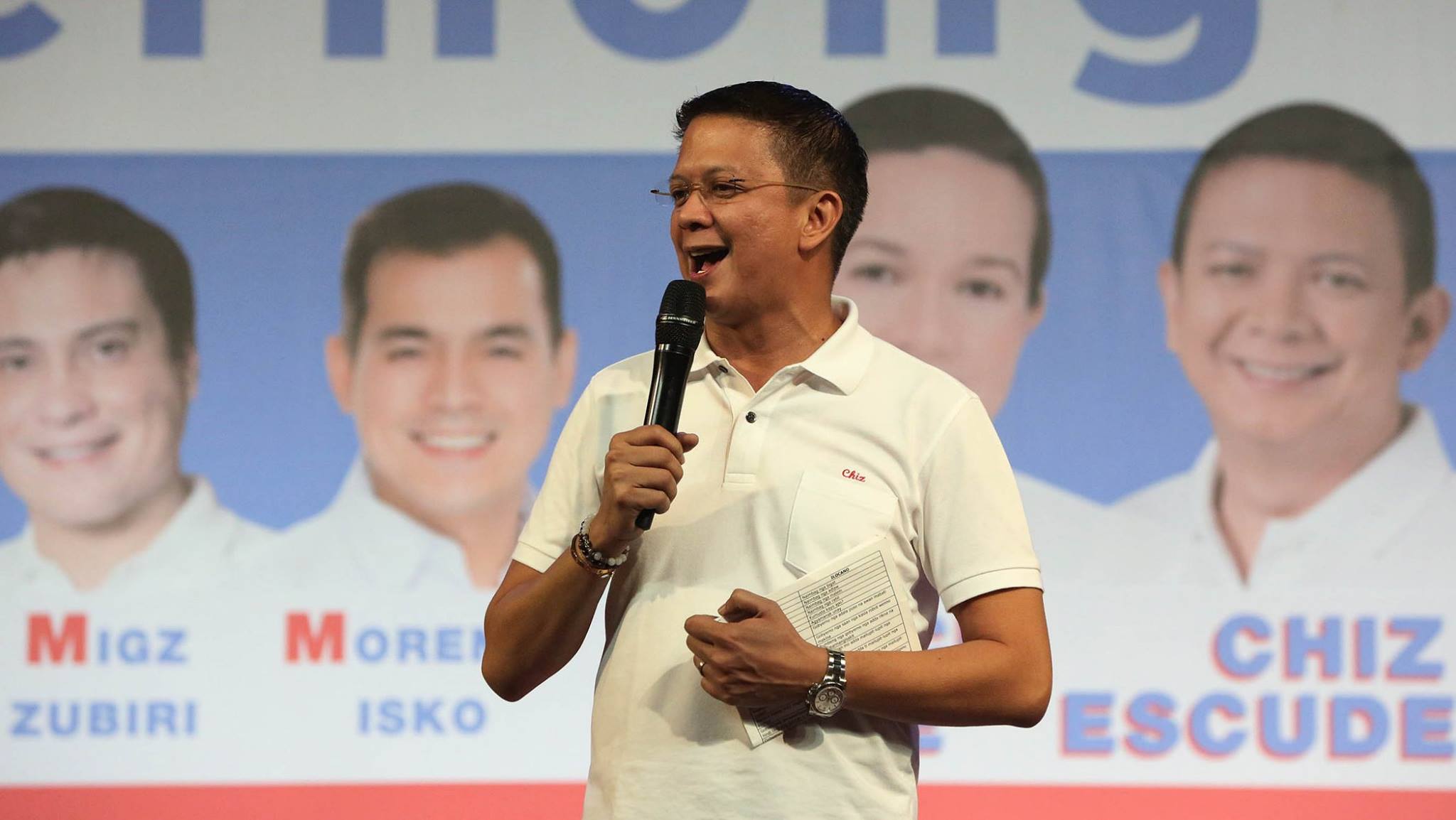
(Photo courtesy of Escudero’s official Facebook page)
MANILA—Vice presidential frontrunner Senator Francis “Chiz” Escudero challenged all national and local candidates on Sunday to waive their rights under the bank secrecy law as an assurance that they are not keeping any ill-gotten wealth and won’t enrich themselves once elected into office.
“There is a perception that the bank secrecy law was meant to protect corrupt government officials as it shields their bank accounts from being scrutinized,” Escudero said. “And the only way to correct this perception is to require government officials and those gunning for elective posts on May 9, including me, to waive this right under R.A. 1405.”
Republic Act No. 1405 has been in place since 1955. It prohibits disclosure of or inquiry into deposits with any banking institution, as well as provides penalties of imprisonment or fine for offenders.
But if candidates would commit to this waiver, it will preempt those who will seek to amass illegal fortune at the expense of taxpayers, Escudero said.
The Bureau of Internal Revenue has been pushing for the lifting of the country’s restrictive bank secrecy law for the purpose of apprehending big-time tax evaders, smugglers and money launderers to hike tax collections.
The critics, however, expressed apprehension that the revenue agency will use it against officials who are at odds with the administration or even malign private individuals.
According to Escudero, he favors the lifting of confidentiality on bank deposits, including foreign currency accounts that are protected under R.A. 6426 or the Foreign Currency Deposit Act of 1974, but only insofar as government officials and employees are concerned. In fact, he added, there is a pending bill in the Senate for this purpose.
The veteran lawmaker was referring to Senate Bill No. (SBN) 16 which he filed in July 2013. He also filed a similar bill in 2007 and 2010 during his first term as senator.
“Public office is a public trust and government officials and employees are all accountable to the public,” Escudero said.
“To ensure that a government official or an employee does not use his or her position to plunder public coffers, it is necessary that we put in place a mechanism that will enable the government to audit the finances of civil servants,” he added.
Both R.A. 1405 and R.A. 6426 provide that bank deposits may only be inquired into with the written permission of the depositor.
Since 2010, Escudero has been submitting together with his sworn Statements of Assets, Liabilities and Net Worth (SALN) a written waiver on secrecy of his bank deposits filed every year with the Office of the Ombudsman.
Escudero said SBN 16, if enacted into law, will enable the government to audit the finances of all civil servants, including the President.
SBN 16 seeks to compel government officials and employees, except those who serve in an honorary capacity, to submit a written permission or waiver in favor of the Ombudsman to look into all deposits of whatever nature with banks within and outside the country, including investments in government bonds.
The waiver will be submitted within 30 days from the date of their assumption into office. Those who are already working in government, upon the effectivity of the law, will have to submit the waiver not later than 30 days from promulgation of the rules and regulations implementing the law.
Any public official or employee who fails or refuses to submit such waiver will be barred from entering or continuing the functions of his or her office.